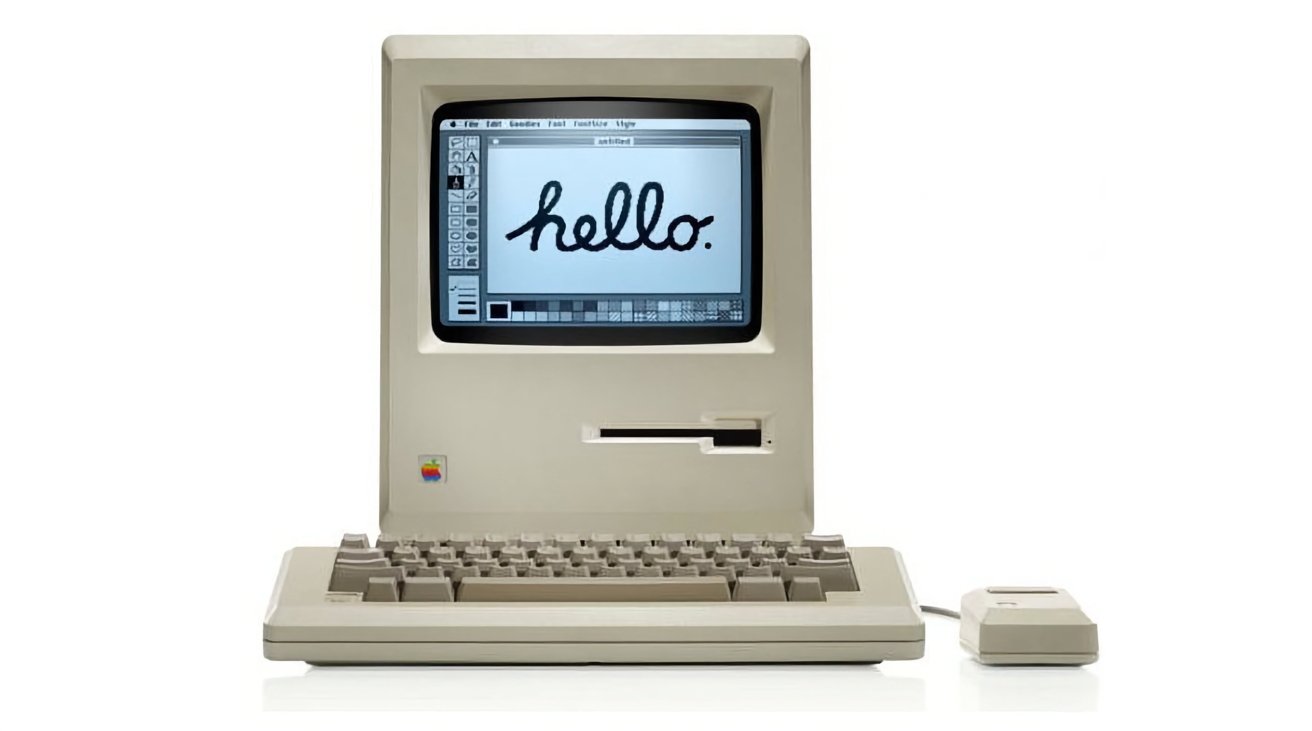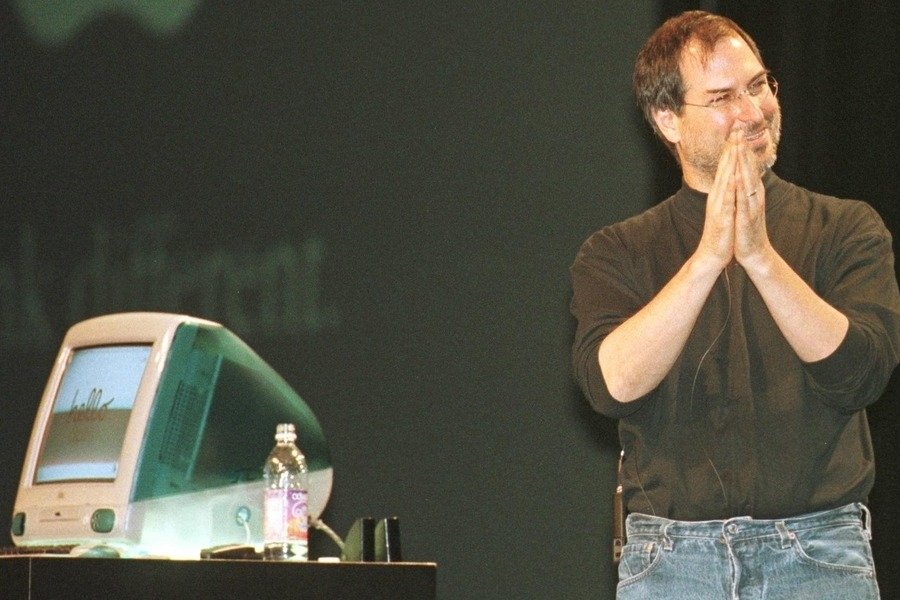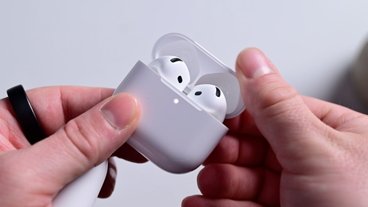The Mac's 40-year existence is "unbelievable" to Apple itself, the company's executives insist, with the personal computer surviving thanks to countless innovations.
January 24 will be the Macintosh's 40th birthday, marking four decades since Steve Jobs showed off what he believed to be the future of computing. As the anniversary rolls around, Apple executives have passed comment on the personal computer that's still very important to the company.
For Apple SVP Greg Joswiak, "It's not a story of nostalgia, or history passing us by. The fact we did this for 40 years is unbelievable," reports Wired. Part of that was fueled by the constant gradual changes that happened throughout the Mac's lifetime.
On the theme of change, Apple SVP of hardware engineering John Ternus explains the latest chip change continued the tradition. "With the transition to Apple Silicon that we started in 2020, the experience of using a Mac was unlike anything before that."
After numerous revolutions, it became the second-place product in Apple's catalog behind the iPhone after its 2007 launch. However, the iPhone improved the Mac in many ways, such as turning touchscreen gestures into something that could be performed on a trackpad.
"Our goal is to make those products work really well together, to create that consistency," said VP of human interface design Alan Dye.
The influence of iPhone goes beyond interfaces, with Apple's move to make its own chips for its portable devices translating into desktop equivalents.
"I joke that we had to create the iPhone to create the scale to build the Mac we wanted to build," offered SVP of software engineering Craig Federighi. Ternus added that iPhone's sales helped, proposing "As the business has been successful, it's enabled us to invest and do the things we always wanted to do."
"When we first started working with Apple silicon, it honestly did feel for us like the laws of physics had changed," Ternus continued. "All of a sudden, we could build a MacBook Air with no fan with 18 hours of battery life. The best arrow in our quiver is efficiency. Because if you can improve efficiency, everything gets better."
Format changes
When asked about the form factors of Macs being stable and relatively static, and whether new iterations could be produced in the future, industrial design leader Molly Anderson admits "There's definitely the possibility for a revolution."
When starting a new project, Anderson tells, "we don't start by thinking of the constraints of how popular our existing products are. We're always focused on trying to design the best tool for the job".
Even so, Joswiak adds that the changes are quite deliberate when they are actually made. "The road to tech hell is paved by people who can do things because they can, not because they should," he warns.
Just as the iPhone influenced the Mac, the new Apple Vision Pro and the advent of Spatial Computing could very well prompt changes in Mac, Dye offers, though "The Mac experience is already on Vision Pro."
"What's been so successful for us is really one studio full of designers across hardware and software design, and also sound design, material design, color design," he continues. "We're up to like 50 disciplines now, including haptics and things like that. We've worked really hard to keep it all together in one space, designing every product that Apple makes."
On the subject of range, which Jobs limited to just four models in 1997 to avoid confusion, Joswiak proclaims the current wider range as being "incredibly simple," with a consumer lineup and a Pro side.
When pressed about some of Mac's failures, the executives deftly avoid most traps, except for the Touch Bar. "In many cases, we're going to take bold swings at big ideas and work hard to see where they take us," Federighi commented. "Sometimes those learnings turn into future evolutions. Sometimes we take a step back."
For Microsoft's addition of an "AI Button" to keyboards, the group found the idea to be funny, with Joswiak joking "Oh that's a huge innovation." Federighi tempered the comedy by proposing "AI is an enabler of the scenes and features that just work."
Forty more years?
Lastly, when questioned if Apple will retain the Mac in 40 years time, Joswiak muses "It's hard to imagine there being an Apple and not having a Mac."
"The Mac has been able to absorb and integrate the industry's innovations," Federighi opined. "With each major technology wave, from graphical computing to the internet to even creating tools for mobile, the Mac has taken potential and turned it into intuitive creative tools for the rest of us."
"With seemingly disruptive waves like spatial computing and AI, the Mac will renew itself over and over."
 Malcolm Owen
Malcolm Owen








-m.jpg)






 Charles Martin
Charles Martin
 Marko Zivkovic
Marko Zivkovic
 Andrew Orr
Andrew Orr
 Amber Neely
Amber Neely

 William Gallagher and Mike Wuerthele
William Gallagher and Mike Wuerthele









8 Comments
Here’s to 40 more years of Macs being the best computers on the planet.
Waiting for them to take a really bold swing in industrial design with the Mac and iPhone. Still slabs of metal, plastic, and glass. We haven't seen a real design change since the iMac G4 with the swivel neck (which they should be adding to any desktop Mac or standalone display). Or the G4 Cube.
There is so much possibility for them to innovate in the design space given the ridiculous war chest of money they have, but instead, they iteratively change their top-performing devices into slightly different rectangles.
Hope whoever helms Apple next is willing to be a little more bold than Cook.
During the introduction of the iPhone, I recall Steve Jobs saying something like, "If we can grab just 10% of the smartphone business, it will be successful." Ironically, it's the Mac that's grabbing only 10% of the personal computer business, and it's still successful.
Having used a Mac for just shy of those 40 years, I can attest to its usefulness. I’ve always hated when I’ve had to use windows.
My Macs over the years:
Macintosh IIsi
Power Macintosh 7500
Macbook Pro 15” (2006)
MacPro (2009)
iMac 27” (2014)
iMac 27” (2020)
MacBook Air (M2)
Macintosh IIci
Power Macintosh 8500
Mac Studio